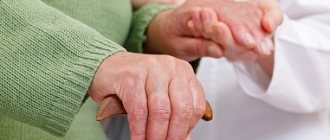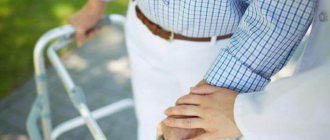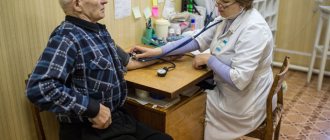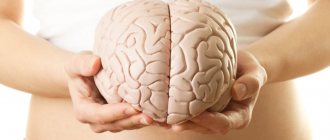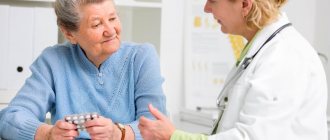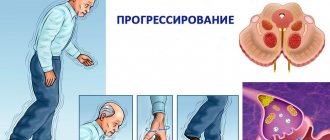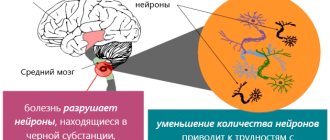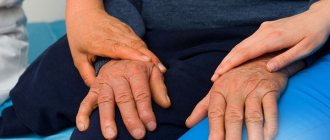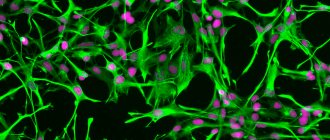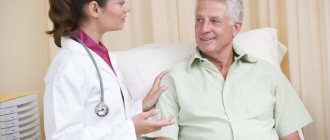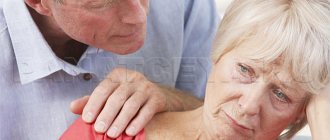Parkinson's disease is the name of a slowly developing pathology of the central nervous system. The main symptoms of the disease include movement disorders, muscle rigidity (increased tone), tremors at rest.
Carriers of the pathology experience not only vegetative, but also affective disorders. Neurologists diagnose patients with true parkinsonism - Parkinson's disease - and parkinsonism syndrome. The latter becomes a complication of other neurological diseases: malignant brain tumors, strokes, encephalitis, etc.
How does Parkinson's disease manifest?
— Parkinson's disease belongs to the so-called neurodegenerative diseases, which are characterized by the gradual death of various types of neurons, which leads to a decrease or loss of any functions of the central nervous system. Alzheimer's disease also belongs to this group.
In Parkinson's disease, dopaminergic neurons that produce dopamine die. They are mainly located in the midbrain (the part of the brain responsible for many of its functions, including vision, hearing and coordination of movements - note "Papers") and belong to the basal ganglia system (clusters of gray matter responsible for motor and autonomic functions). functions - note "Paper"), taking part in the regulation of movements, motivation and reinforcement systems.
Due to a decrease in the amount of dopamine, it is precisely these brain functions that disappear: tremors appear, gait is disturbed, muscles become rigid (are in constant tension - note from “Papers”). In the final stage of the disease, when dopamine becomes catastrophically low, people, in the absence of therapy, become very sedentary, they are even called “frozen.” At the same time, thinking abilities in Parkinson's are usually impaired to a lesser extent.
Folk remedies
The patient will not be able to cope without drug treatment. Traditional medicine methods for Parkinson's disease will only slightly alleviate his condition.
- Patients often suffer from sleep disturbances; they may wake up repeatedly during the night and walk around the room in a half-asleep state. In doing so, they bump into furniture and can seriously injure themselves. Therefore, a patient suffering from parkinsonism should create an extremely comfortable environment for night rest.
- The patient will benefit from foot baths with fern decoction. To prepare the decoction you need to take 5 tbsp. l. dry rhizomes, add 5 liters of water and boil for at least 2 hours. Cool the broth and prepare a foot bath.
- A mixture of freshly squeezed juices of plantain leaves, nettle and celery will help reduce clinical manifestations.
- Herbal teas are prepared from linden blossom, chamomile, sage or thyme. It is better to take plants separately, adding to 1 tbsp. l. substrate 1 tsp. dry motherwort herb for a sedative effect. At 2 tbsp. l. of the medicinal plant, take 500 ml of boiling water and infuse it in a bowl covered with a towel.
Before using any products from this category, you should consult your doctor!
Why Parkinson's disease cannot be diagnosed before the first symptoms
— Early diagnosis of this disease is a very big problem. And the search for new diagnostic methods is one of the priorities facing researchers. Now the diagnosis is made on the basis of clinical manifestations, and they appear only when about 80% of dopaminergic neurons have already died.
Positron emission tomography (PET) of the brain can also help in making a diagnosis, but this is a rather expensive procedure and cannot be performed everywhere.
The first manifestations of the disease are different. It’s difficult for me to say which symptoms will be the first, since I don’t work with patients, but, as far as I know, the most common reason for contacting a doctor is the appearance of hand tremors and some lethargy in patients. Patients pay attention to other symptoms after their visit to the doctor, when they are asked specific questions [about the symptoms].
What to do
Parkinson's disease is considered incurable. Disorders of the nervous system are actively progressing. The average life expectancy for developing Parkinson's is about 12 years. However, as doctors note, everything is in the hands of the person himself. If measures are taken in time, the pathological process can be slowed down. “Early consultation with a doctor, correct diagnosis and therapy are the main methods of preventing the progression of the disease. Parkinson's disease has specific treatment methods based on the pathological processes in the brain that occur during this disease. The destructive process is the degeneration of the cells of the “substantia nigra” that produce dopamine, as a result of which its level decreases and characteristic symptoms begin to appear. The main treatment methods are aimed at dopamine metabolism and increasing the level of this substance in the brain structure,” says the neurologist.
In addition, in addition to drug therapy, it is worth working with your brain. It has been proven that regular mental activity improves the quality of work of the main organ in the body and allows you to slow down the process of death of nerve cells. Therefore, active reading, learning something new, solving crossword puzzles, walking in the fresh air, which nourishes the brain with oxygen and ensures the renewal of body cells, as well as many other activities, become an excellent means of preventing nervous system disorders and ensuring good health for many years.
Who is susceptible to Parkinson's disease and why its causes are unknown
— Parkinson's is a disease of older people. There is about a 1–2% chance of occurring after age 60, up to 3% after age 80. There are also earlier forms of the disease, but they are very rare. In young people, the onset of Parkinson's disease may be associated with some kind of toxic exposure.
The disease also develops very differently. For some it happens quickly, for others it takes 20 years. What this is connected with is not yet very clear. Most likely, with the peculiarities of the genetic background of each person.
It is now very difficult to talk about the causes of Parkinson's disease. Researchers are looking at genetic causes, but the percentage of such cases is very small, about 20%. There are a number of genes, mutations in which, presumably, can lead to disease. So genetics in this case has an influence, but not a direct one. The disease of relatives, for example, will not affect the development of Parkinson's.
That is, the reasons may be different, but in general, science currently does not know what is the direct cause of Parkinson’s disease.
Many diseases associated with the central nervous system are difficult to decipher because this system itself is very complexly organized. Hence the problems with diagnosing and studying the causes of Parkinson’s disease.
Epidemiology
Parkinson's disease accounts for 70-80% of cases of parkinsonism syndrome. It is the most common neurodegenerative disease after Alzheimer's disease.
The disease occurs everywhere. Its frequency ranges from 60 to 140 people per 100 thousand population, the number of patients increases significantly among representatives of the older age group. The proportion of people with Parkinson's disease in the age group over 60 years old is 1%, and over 85 years old - from 2.6% to 4%. Most often, the first symptoms of the disease appear at 55-60 years of age. However, in some cases, the disease can develop before the age of 40 (early-onset Parkinson's disease) or before 20 years of age (juvenile form of the disease).
Men get sick slightly more often than women. There were no significant racial differences in the incidence pattern.
How is Parkinson's disease treated and why does it progress even with treatment?
— At the moment, Parkinson's disease is incurable, there is only symptomatic treatment. The main drug for the treatment of Parkinson's disease is L-DOPA. This is a precursor of dopamine, which in the human brain is converted into dopamine and for some time makes up for its deficiency.
In addition to L-DOPA, other drugs are used that affect the dopaminergic system, as well as drugs that relieve some symptoms of the disease. But in a nutshell, we can say that the essence of treatment comes down to stimulating the dopaminergic system to replenish lost brain functions.
But modern treatment has many disadvantages. Firstly, medications do not treat the disease itself, and it is constantly progressing. Secondly, drugs cannot completely replace lost functions. Thirdly, taking L-DOPA leads to the development of side effects, the main of which is addiction, the need to constantly increase the dose of the drug.
In addition, L-DOPA-induced dyskinesia occurs - uncontrolled movements associated with taking the drug. What exactly causes dyskinesia is currently unclear, and therefore it is unclear how it can be treated.
Modern treatment cannot be called sufficiently effective. But you still need to undergo it: it makes life easier and for some time allows you to return to a relatively normal state and control the manifestations of the disease. For some, this treatment can last for decades.
Main signs and symptoms
It is impossible to prevent the occurrence of the disease in advance, since its occurrence is not associated with genetic predisposition. However, identifying signs of the disease in the early stages makes it possible to stop the further progressive course. At the initial stage, it is extremely difficult to detect the disease, because the nerve cells are just beginning to gradually deteriorate. With the transition of the disease to a new stage, new symptoms of nervous system disorders are observed. Parkinsonism changes a person at lightning speed.
Signs of Parkinson's disease at the initial stage
At the moment when the disease has not yet declared itself, it is difficult to determine the initial stage of destruction. But if you take a very strict approach to your health, you can detect the first signs of Parkinson's disease:
- the appearance of a slight trembling in the hands, which the patient may not feel at all,
- movements become slower
- a person may fall into a state of depression, have problems sleeping, and disrupt the functioning of the gastrointestinal tract.
When you notice the appearance of signs such as tremor, when walking, your arms do not make the usual sweeping movements, they remain pressed to the body, the motor activity of the limbs is disrupted, stooping when walking, poor facial expressions, which means that the brain cells have begun to produce less of the neurotransmitter dopamine and the pathology becomes wide coverage. Serious disorders of the nervous system appear.
When might there be an effective cure for Parkinson's disease?
— Now there is great interest in cell replacement therapy, that is, the creation of a certain type of cells that will help replace lost functions. Parkinson's disease has become one of the first areas where such treatment has already reached clinical trials, testing the effectiveness and safety of the drug in humans.
Several clinical trials for treatments for Parkinson's disease have already begun. Several more should begin at the end of 2019 - beginning of 2020. Each case uses a different source of dopaminergic neurons. It should be noted that researchers in different parts of the world do not work separately, trying to get ahead of each other, but have united into a community that meets once a year and shares their results. Together they identify any difficulties, features, or new approaches. This is exactly what is needed to solve the problem as quickly as possible.
The first trials began last year in Japan, and the first patient was transplanted with [the necessary cells] in November 2021. Clinical trials have also started in China, but I don’t know what stage they are at. Also, clinical trials should begin in Sweden and the USA in the near future. I hope that Russia will join in over time.
The results of Japanese tests should be known by 2023.
Specialized clinics
In Europe, one of the leaders in the field of neurosurgical treatment and rehabilitation of patients diagnosed with Parkinson's disease is the Czech Republic. The Czech Republic has extensive experience in restoring musculoskeletal functions and the lost potential of the central nervous system not only in Parkinsonism, but also in Alzheimer's disease, epilepsy, and brain tumors. Medical care is provided according to modern neurosurgery standards.
Czech specialists exclusively use proven, effective and gentle technologies that are relevant to the present time. Clinics in the Czech Republic are world-famous institutions that are not inferior to medical institutions in Germany and Israel. And at the same time, prices for radio- and neurosurgical care for parkinsonism in the Czech Republic are many times more affordable (at least 1.5 times lower) than in these countries.
What to do to reduce the risk of disease
There is no specific prevention for Parkinson's disease. But there are recommendations for the prevention of neurodegenerative diseases in general.
These recommendations boil down to maintaining a healthy lifestyle. A normal work schedule and physical activity are needed: it has been proven that running significantly reduces the progression of such diseases. All fine motor skills and playing musical instruments are demonstrated. Also, eat healthy. Some drugs can be toxic to dopaminergic neurons, so it's a good idea to avoid bad habits.
Treatment at the Energy of Health clinic
Neurologists at the Energy of Health clinic will come to the rescue at any stage of Parkinson’s disease. We offer comprehensive treatment in accordance with modern standards:
- selection of drug therapy;
- physiotherapeutic procedures: magnetotherapy, laser treatment, etc.;
- therapeutic massage courses;
- Exercise therapy directly in the clinic;
- training in physical exercises for exercise at home;
- organization of sanatorium-resort treatment if indicated;
- training relatives in the rules of caring for the sick;
- work with a psychologist and psychiatrist if necessary.
